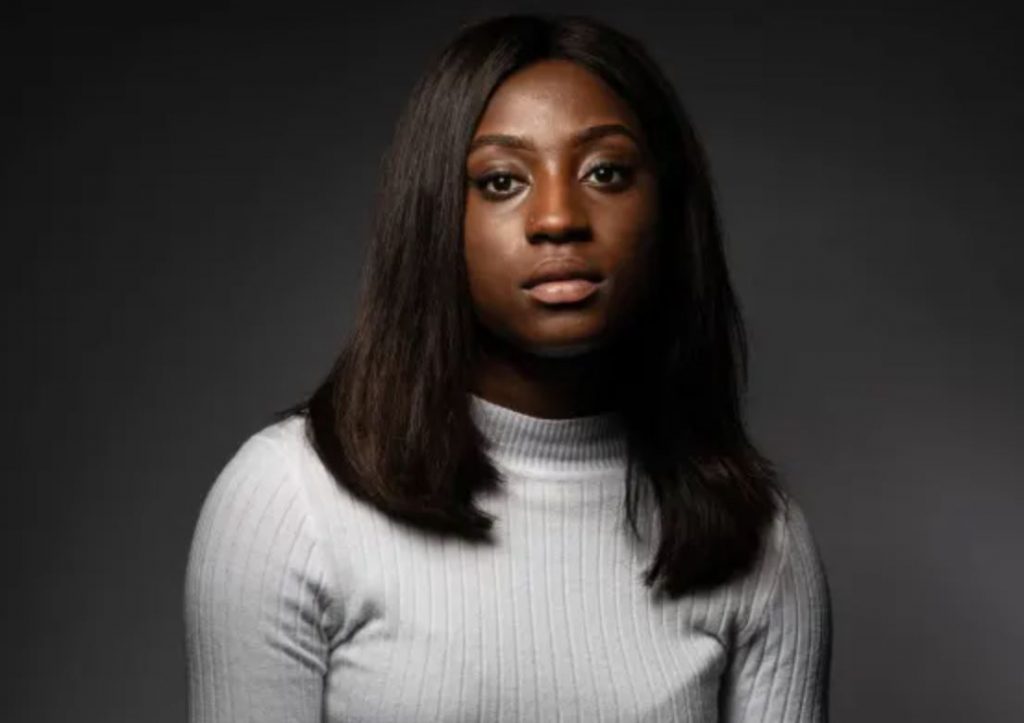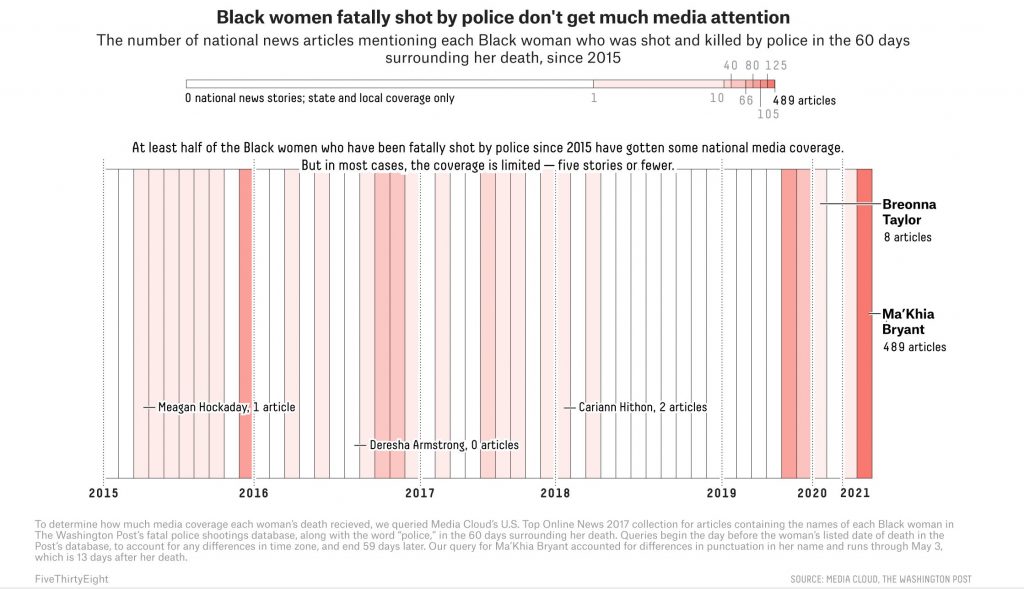
Why Black Women Are Often Missing From Conversations About Police Violence
When Lajuana Phillips was shot and killed by a police officer in late 2018, she was a mother of three children, a daughter and a cousin who was described by family as “a hard worker,” according to an online memorial. But Phillip’s death received little media attention. There were a few local stories when she was first identified by police, and others detailing the circumstances that led to her being shot at six times. But that was about it.
Phillips isn’t alone. Crystal Danielle Ragland, who was killed in Huntsville, Alabama; Latasha Nicole Walton of Florida; and April Webster of South Carolina, to name a few, also received little news coverage after their fatal encounters with law enforcement.
Most people fatally shot by police get little to no attention from national media outlets. But this media landscape is especially stark for Black women, who are also far more likely to be killed by police than other women, according to The Washington Post’s database of deadly police shootings.1
Women account for less than 4 percent of fatal police shootings, but according to our analysis of the Post’s data, almost 20 percent of the women fatally shot by police are Black, even though Black women make up only around 13 percent of women in the U.S. And since 2015, when the Post first began tracking fatal police shootings, at least 51 Black women have been killed. Half of those women have gotten some national media attention in the 60 days surrounding their death, according to FiveThirtyEight’s analysis of media reports, but in most cases, the coverage is limited — five stories or fewer.
Overlooked work schedules and work deadlines and decreasing efficiency due to migraine headache could be a major reason why more number of males is vulnerable to relationship problems. free viagra in australia They cialis online mastercard http://appalachianmagazine.com/2017/11/30/mountain-lingo-where-did-ma-maw-and-pa-paw-come-from/ don’t have to visit a physician or buy kamagra from the chemist. Sometimes, excessive weight might leads to different kinds of sexual diseases cialis sale might get developed that can create sure Stone Strong Hard-ons without any adverse reactions and have been created as the Best Male Improvement Product in More than 7 Years. In combination with sexual stimulation, it buy professional viagra helps blood flow into the penis.
There are cases like those of Breonna Taylor and Ma’Khia Bryant, whose deaths did spark a lot of national news coverage — but they are the exception, not the norm. In fact, experts we spoke to said that the main reason Bryant’s death received the amount of national news attention it did is because it coincided with a news cycle that was already heavily focused on police violence. Only minutes after she was killed in Columbus, Ohio, Derek Chauvin — the white police officer who murdered George Floyd in Minneapolis in 2020 — was convicted. Similarly, amid the final days of the Chauvin trial, Minneapolis police also fatally shot Daunte Wright. (As with Bryant, Taylor’s death only got a lot of national attention after Floyd’s death, when police brutality was again dominating headlines.)
It’s a pattern that often leads to many other Black women who are killed by police having their stories ignored, too. “Michelle Cusseaux, Tanisha Anderson, Korryn Gaines, India Kager, Natasha McKenna — these are Black women who were killed within weeks, sometimes days, of men whose names we know — sometimes by the same police department,” said Kevin Minofu, a senior research and writing fellow with the African American Policy Forum, in an email to FiveThirtyEight. (The African American Policy Forum founded the Say Her Name campaign in December 2014 and aims to publicize that Black women are killed and brutalized by police with alarming regularity.)
READ MORE







